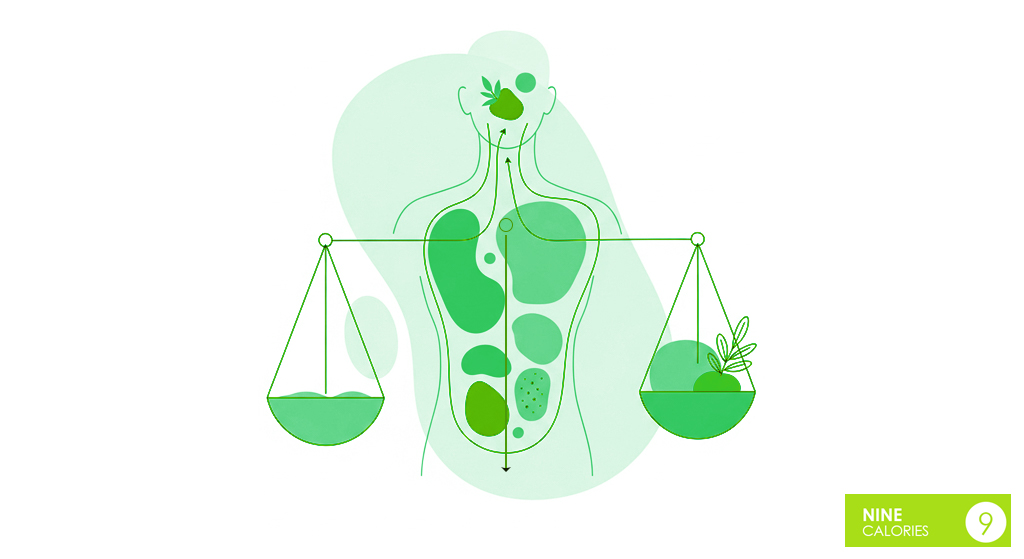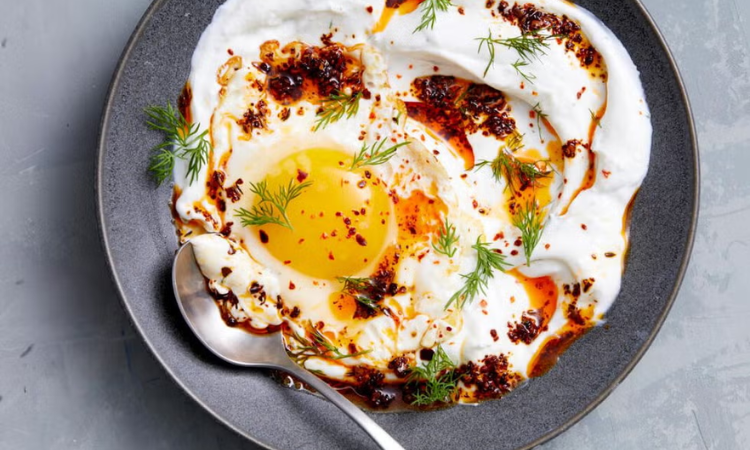Nutrition plays a vital role in sexual health. What you eat affects energy, hormone levels, and blood flow. These factors directly influence libido and sexual performance. This guide explains how calories and nutrients impact sexual function. It provides practical, science-based advice to improve intimacy through diet.
Table of Contents
Why Nutrition Matters for Sexual Health
A balanced diet supports overall health. It also enhances sexual function. Proper nutrition ensures adequate energy for physical activity. It maintains hormone balance for libido. It also supports circulation for arousal. Poor dietary choices can reduce sex drive. They can also impair performance. This article explores how to optimize nutrition for better intimacy.
How Calorie Intake Affects Sexual Health
Calories provide energy for bodily functions. Sexual activity requires energy. Therefore, calorie intake impacts libido and performance. Both too few and too many calories can cause problems. A balanced approach is essential.
Risks of Low Calorie Intake
Severe calorie restriction harms sexual health. It signals the body to conserve energy. As a result, reproductive functions may suffer. In men, low calories can reduce testosterone levels. This leads to lower libido and erectile issues. In women, it can disrupt estrogen and progesterone. This affects menstrual cycles and sex drive. For example, athletes on strict diets may notice reduced energy for intimacy. To avoid this, consume enough calories to support daily needs.
Risks of Excess Calories
Consuming too many calories can also harm sexual health. Excess calories often lead to weight gain. Obesity is linked to lower testosterone in men. It can also cause poor blood flow, which is critical for arousal. In women, excess weight may disrupt hormone balance. It can also lower self-esteem, affecting sexual confidence. A balanced diet prevents these issues. It supports both physical and emotional well-being.
Calories Burned During Sex
Sexual activity burns calories. A 30-minute session burns about 100–150 calories for most people. More vigorous activity may burn 200–300 calories. However, this varies based on intensity and body weight. For example, a 150-pound person burns approximately 3–4 calories per minute during moderate activity. Sex contributes to daily energy expenditure. However, it should not replace regular exercise. Combining a healthy diet with physical activity supports sexual health.
Key Nutrients for Sexual Health

Certain nutrients directly support libido and performance. They influence hormone production, blood flow, and stress levels. Below are the most important nutrients and their benefits.
Zinc for Hormone and Sperm Health
Zinc is essential for testosterone production. It also supports sperm health. A deficiency can cause erectile dysfunction. It may also reduce sex drive. Men need 11 mg of zinc daily, while women need 8 mg. Food sources include:
- Oysters (74 mg per 3 oz)
- Beef (5 mg per 3 oz)
- Pumpkin seeds (2 mg per ounce)
- Chickpeas (1.3 mg per cup)
Eating zinc-rich foods supports hormonal balance. This improves libido and fertility.
Omega-3 Fatty Acids for Circulation
Omega-3s improve blood flow. They also reduce inflammation. Good circulation is vital for arousal and sensation. Omega-3s support cardiovascular health, which enhances sexual performance. Adults should aim for 250–500 mg of EPA and DHA daily. Food sources include:
- Salmon (1,200 mg per 3 oz)
- Walnuts (2,500 mg per ounce)
- Flaxseeds (1,600 mg per tablespoon)
Incorporating omega-3s into meals promotes better intimacy. It also benefits heart health.
Vitamin E for Reproductive Health
Vitamin E is an antioxidant. It protects reproductive cells from damage. It also supports hormone production. Adults need 15 mg daily. Food sources include:
- Almonds (7 mg per ounce)
- Sunflower seeds (10 mg per ounce)
- Spinach (2 mg per cup)
Vitamin E enhances fertility and sexual function. It is easy to include in a balanced diet.
Magnesium for Stress and Muscle Relaxation
Magnesium reduces stress. It also helps muscles relax. Both are important for sexual function. Stress can lower libido. Tense muscles may reduce comfort during intimacy. Adults need 310–420 mg daily, depending on age and sex. Food sources include:
- Dark chocolate (65 mg per ounce)
- Avocados (58 mg per medium fruit)
- Leafy greens (80 mg per cup of spinach)
Magnesium-rich foods promote relaxation. This creates a better environment for intimacy.
L-Arginine for Blood Flow
L-Arginine is an amino acid. It boosts nitric oxide production. Nitric oxide improves blood flow, which is essential for arousal. Food sources include:
- Turkey (4 g per 3 oz)
- Lentils (1.3 g per cup)
- Dairy products (0.5–1 g per cup)
L-Arginine supports stronger erections in men. It also enhances sensation in women.
Foods That Harm Sexual Health
Some foods and substances reduce sexual function. They affect hormones, energy, or circulation. Avoiding these improves intimacy.
Processed and High-Sugar Foods
Processed foods often contain trans fats. These impair blood flow. High-sugar foods cause energy crashes. Both reduce libido and performance. For example, frequent consumption of sugary snacks may lead to fatigue. This makes intimacy less appealing. Choose whole foods instead.
Excessive Alcohol
Moderate alcohol may relax you. However, excess alcohol harms sexual health. More than one or two drinks can:
- Lower testosterone levels
- Cause erectile dysfunction
- Disrupt sleep, reducing energy
Limit alcohol to one drink per day for women and two for men. This supports sexual function.
High-Sodium Foods
Excess sodium raises blood pressure. High blood pressure damages blood vessels. This reduces circulation needed for arousal. Processed meats and canned soups are high in sodium. Adults should limit sodium to 2,300 mg daily. Use fresh ingredients to control salt intake.
Practical Tips for a Sex-Supportive Diet
Small dietary changes can improve sexual health. Follow these guidelines for better intimacy.
Eat Balanced Meals
Include protein, healthy fats, and fiber in every meal. Protein supports hormone production. Healthy fats improve circulation. Fiber stabilizes blood sugar. For example, a lunch of grilled salmon, avocado, and quinoa provides all three. Avoid extreme calorie restriction. It depletes energy and hormones.
Stay Hydrated
Dehydration causes fatigue. It also reduces focus and stamina. Drink 8–10 cups of water daily. Proper hydration supports energy during intimacy. Carry a reusable water bottle to stay consistent.
Prioritize Whole Foods
Choose unprocessed, nutrient-dense foods. Fruits, vegetables, lean proteins, and whole grains provide essential nutrients. They also maintain steady energy levels. For example, a breakfast of oatmeal with berries and nuts fuels your day. It also supports sexual health.
Moderate Alcohol and Caffeine
Excess caffeine can increase anxiety. This may lower libido. Limit coffee to 1–2 cups daily. Avoid alcohol before intimacy. It impairs performance. Choose herbal tea or water instead.
Time Your Meals
Eating large meals before intimacy can cause discomfort. Plan lighter meals 2–3 hours before. For example, a salad with chicken and olive oil is ideal. It provides nutrients without feeling heavy.
Additional Considerations for Sexual Health
Beyond nutrition, other factors influence sexual function. Regular exercise improves blood flow and confidence. Aim for 150 minutes of moderate activity weekly. Sleep is also critical. Poor sleep disrupts hormones. Get 7–8 hours nightly. Stress management, like meditation, supports libido. Combining these with a healthy diet maximizes benefits.
Fact-Checked Insights
Research confirms nutrition’s role in sexual health. A 2023 study in Nutrients found zinc deficiency linked to low testosterone. Omega-3s improve vascular health, per a 2021 eClinicalMedicine study. Obesity is associated with erectile dysfunction, according to Pol Merkur Lekarski (2014). These findings support the dietary recommendations above. Always consult a healthcare provider for personalized advice.
Conclusion: Optimize Nutrition for Better Intimacy
Nutrition directly affects sexual health. Adequate calories maintain energy and hormones. Zinc, omega-3s, and magnesium support libido and performance. Avoiding processed foods, excess alcohol, and high sodium protects circulation. Small changes, like eating balanced meals and staying hydrated, lead to noticeable improvements. A healthy diet enhances intimacy and overall well-being. Start making these adjustments today for a better tomorrow.




